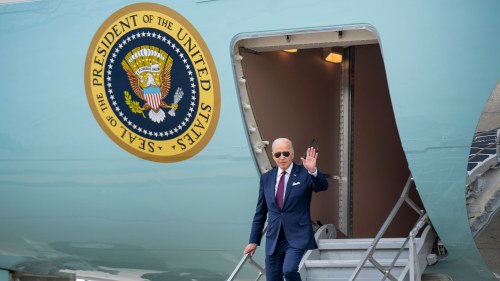Foreign Policy Matters: Republicans Turn Inward

Americans Grow Less Enthusiastic about Active US Engagement Abroad
Should the United States play an active role on the international stage or stay out of global affairs? For the first time since the Council began asking the question in 1974, a slim majority of Republicans (53%) now say it would be better for the future of the country if it stays out.
“This drop among everyday Republicans likely reflects debates within the GOP leadership itself, which has become increasingly divided over continued assistance to Ukraine,” the Council’s Dina Smeltz and Craig Kafura write. However, “the effects of the debate over US involvement in the war in Ukraine seem—thus far—to be limited to other questions about the US global military presence and the use of US troops in scenarios not involving top concerns for Republicans.”
Read the full report.
The Data Dimension
As support for an active US role in global affairs has dropped, so has the public’s perception of how the United States compares to other nations. While a narrow majority of Americans (52%) say the United States has a unique character that makes it the greatest country in the world, that percentage has steadily declined over the past decade, down from a high of 70 percent in 2012.
What We're Watching
- The US-Israel relationship: While a majority of Americans value the security partnership, Council polling conducted in September finds they also say the status quo between Israel and the Palestinians is unacceptable.
- US aid to Ukraine: As congressional budget debates continue, six in 10 Americans support providing additional economic assistance, arms, and military supplies to the Ukrainian government.
- Climate change and geopolitics: Experts Jason Bordoff and Meghan O'Sullivan join Deep Dish to unpack how a transition to green energy could impact the world’s power dynamics.
- Washington’s political dysfunction: “If the United States can’t lead by example as a defender of democracy and the rule of law at home, we’ll have a hard time defending them elsewhere,” Senior Fellow Elizabeth Shackelford argues in the Chicago Tribune.
Ask an Expert
How will the Israel-Hamas war impact the Israeli-Palestinian peace movement?

“What you're seeing on both sides of the border there right now is just complete despair about the long-term in particular. The peace movement in Israel feels like they were totally betrayed. [...] And the poor Palestinians are caught in the middle. Most Palestinians think what Hamas did was crazy and terrible. They now know that their chances of living normal lives are even further into the future than they were two weeks ago.”
—Nonresident Senior Fellow Cécile Shea on Fox32 Chicago

